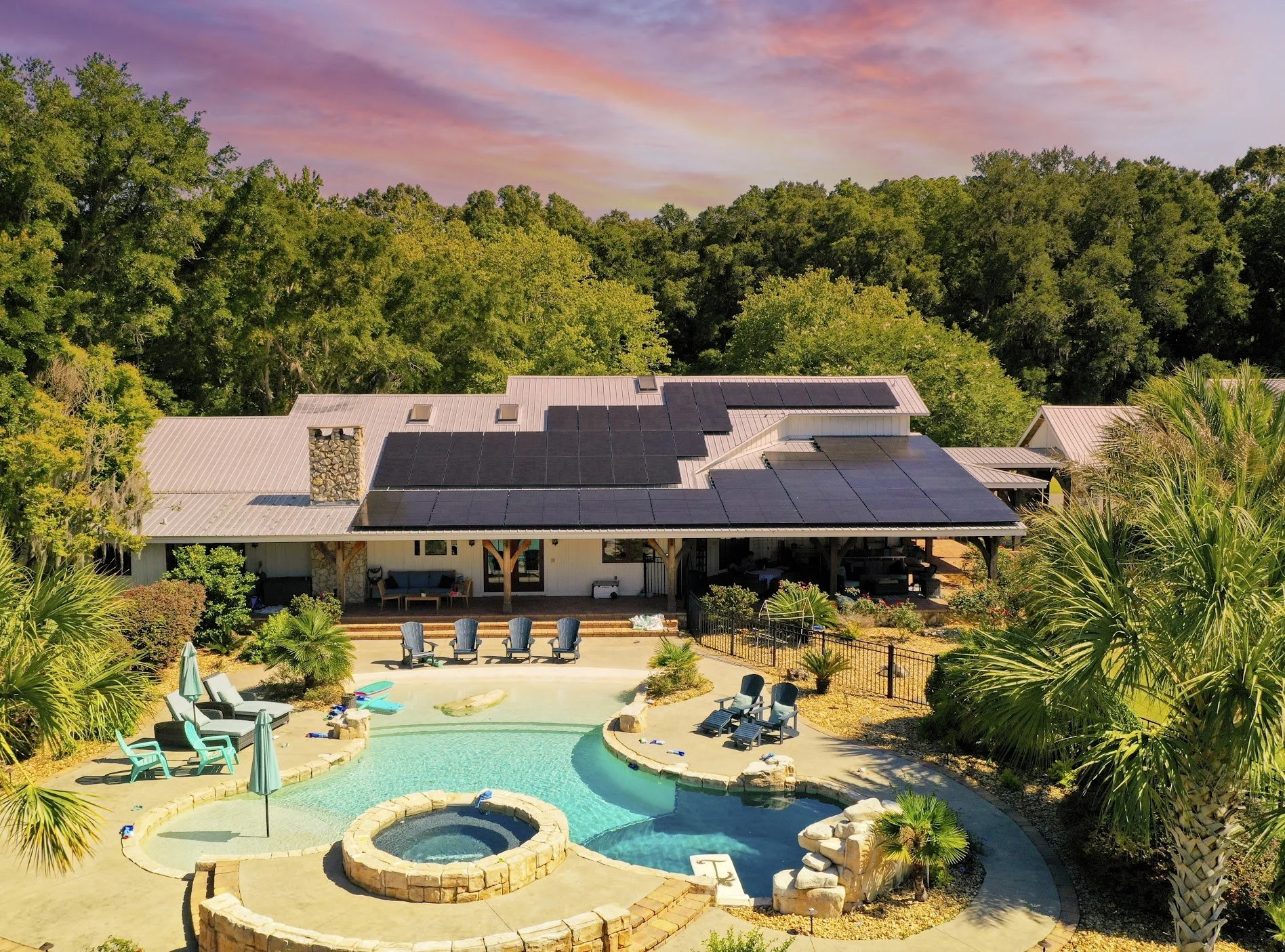Both small business owners and operations officers of commercial enterprises often ask, "Is solar financially worth it for my business in Florida?" The short answer is yes. But there are other, often overlooked, benefits that enhance the bottom line as well.
Virtually every project decision a business owner makes pivots around the projected cost or a return on investment (ROI). The decision to go solar is no different. It's about the money and gain from the investment. But solar energy has so much more to offer than just saving money.
So, let's explore how a solar energy system brings value to a business's bottom line, attracts better employees, and enriches the community.
Advantages for Your Business Brand
An often overlooked or underestimated benefit - for a business with a solar energy system - is the enhanced company image that attracts a higher-caliber employee talent pool. Career seekers prefer working for a forward-thinking company with an environmentally sustainable practices mindset.
Another more unusual benefit of soler is that it uniquely crosses over political party lines too. Solar is a topic of interest for almost every conceivable customer, no matter their political choice. So, showing your company's environmentally driven culture by boasting about going solar is often attractive to prospective customers of any political influence.
So, celebrating having a solar energy system throughout a company's social media, website, and other media is a great idea. Doing so attracts insightful customers and employees.
Benefits to the Environment & Staff
Sunshine is a free and abundant energy source - plus, solar panels do not produce air pollution or greenhouse gases while producing clean, reliable energy to serve warehouses, storage facilities, offices, and other locations necessary to keep the business running. Add an Enphase or Tesla battery backup to the solar array and increase reliability for staff to continue working, even in grid outages. All without harming your environment.
Tax Advantages
Modified Accelerated Cost Recovery System (MACRS) depreciation is a tax tool for businesses to recover some of the capital costs of the solar installation. It allows companies to deduct the appreciable basis over five years, reducing your tax liability and accelerating the rate of return on your solar investment.
Florida Tax Exemptions - Florida residents and business owners are exempt from paying sales tax for solar energy systems.
Decrease Overhead & Increase Profits
Recent market data indicates that the average commercial property owner in the U.S. can decrease overall energy costs by 75 percent by having a solar energy system in Florida. According to the source, the average commercial property owner paid $1,950 in monthly electric bills before going solar in their operations but stabilized energy costs after solar installation into predictable expenses below $600 per month. The difference in these costs drops directly to the bottom line as retained profits.
ROI - Return On Investment
A typical PV solar energy system can realize a 20% ROI in the first year. Solar panels operate well over 30 years, with minimal degradation. If you are a real numbers junky - you can crunch the actual numbers to determine the total financial return. By reviewing current electrical consumption per month, predicting future electrical use, calculating the cost of the solar system purchase, and spreading the calculation across all those expected years of future use.
Solar Payback
On average, today's simplified Levelized payback time on a commercial solar project is 3.5 — 5.5 years, yielding a 15-30% annual return. Once paid off, the business continues to enjoy free electricity for additional 18-21 years under a solar panel warranty.
Incentives, Loans & Grants
Banks and Credit Unions are quickly devising clean energy loans for all financial structures. PPM Solar has the best financial loans available for going solar.
The Rural Energy for America Program, also known as the REAP Grant, is a federal grant from the USDA that can cover up to 25% of the cost of a new solar PV system for agricultural producers and qualifying rural small businesses. Allocations occur annually, usually opening each year in January and closing for selection by May.
Solar For My Business?
Are you wondering how to get to the bottom line about solar?
Collect about one year's worth of your electric bills from your utility company and contact PPM Solar.
Stop overpaying the utility company and start routing your hard-earned money into an investment that genuinely has a return for more than 30 years.
PPM Solar’s professional and friendly staff will gladly assist with determining if solar is the right solution for your business. We also have the best financial loans available for going solar.













